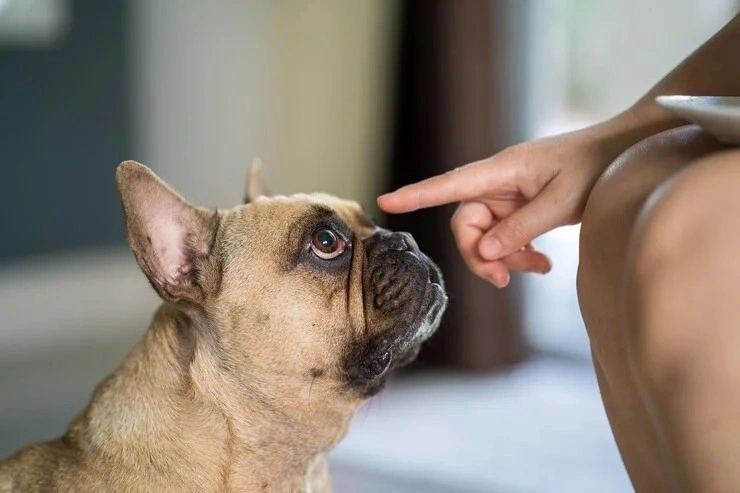
When a new pet parent is bringing home a French Bulldog puppy, the first thing on their mind is how much fun it’s going to be to raise their new furry companion. While it’s true that owning a dog is an incredibly fun and rewarding experience, it can also be very challenging. One of the biggest issues among all dog breeds is separation anxiety.
This common behavioral issue can lead to dogs being rehomed or given up at dog shelters. Learning more about separation anxiety and how to deal with it is crucial to prevent these undesirable outcomes.
What Is Separation Anxiety?
Separation anxiety in dogs is a serious behavioural issue that can cause a variety of problems for pet owners. Separation anxiety occurs when a dog becomes overly attached to its owner, exhibiting distress when left alone. When left unattended, dogs with separation anxiety may bark or howl excessively, chew furniture, destroy items in the home, urinate or defecate in the house, or attempt to escape from confinement. This behavioural issue is estimated to affect around 14 percent of dogs. Any breed of dog can develop separation anxiety, including French Bulldogs.
The first step in dealing with separation anxiety is to identify the underlying cause. This could be due to traumatic experiences or a lack of socialization during the dog’s early life. It’s also important to pay a visit to a trusted veterinarian to rule out any underlying medical issues that could be causing your French Bulldog to experience distress that mimics the symptoms of separation anxiety.
Some of the more common situations that are associated with a dog developing separation anxiety include:
- A change of their owner or family
- Abrupt changes in schedule
- Moving to a new home
- The sudden absence of a family member
How to Deal With Separation Anxiety in French Bulldogs
While there are many potential causes of separation anxiety, it can often be managed with the right training and intervention.
- Desensitization – This is a behavioral technique designed to gradually expose your dog to the stimulus that causes them distress in a safe setting. Start by leaving your Frenchie alone for very short periods (10 to 20 seconds) while they are distracted by something else like a food puzzle or chew toy. Gradually increase the length of time spent away each day while continuing to provide distractions and positive reinforcement when they remain calm and relaxed.
- Exercise – Regular physical activity can help reduce your French Bulldog’s stress and also tire them out so they are less likely to become agitated when separated from you. Aim for at least 30 to 45 minutes of exercise per day, divided into two sessions ideally spread across morning and evening hours (or whatever schedule works best for you).
- Create a Safe Space – Allowing your Frenchie easy access to an area where they feel comfortable and safe will make it easier for them to stay calm when left alone. This could be their bed or a crate with a blanket over the top, or even just a comfy spot on the couch surrounded by their favourite toys and treats.
- Soothing Music – Soft music or nature sounds can have a calming effect on dogs that are experiencing stress. There are plenty of albums and playlists on streaming platforms specifically designed with dogs in mind that feature classical music or soothing ambient soundscapes.
- Chew Toys and Treats – Providing a chew toy filled with treats is another great way to keep your Frenchie occupied during times of separation. Not only will they be mentally stimulated trying to get at the treats inside, but chewing has been proven to release endorphins which helps reduce a dog’s stress levels.
- Use A Calming Pheromone Spray – A pheromone spray formulated specifically for dogs contains synthetic versions of the natural chemicals released by mother dogs that have been shown to have calming effects on puppies. Methods of application vary between different brands and varieties, but in general you’ll spritz this around your pup’s bedding or carrier. These sprays may help reduce your Frenchie’s level of anxiety when left alone, making it easier for them to settle down until you return home.
- Provide a 4-legged companion – Not everyone is able to have more than one pet in the home, but Frenchies (and other breeds) love other animals to keep them company when their 2-legged family members cannot be there. It can be another Frenchie, or virtually any other type of house dog, but they also get along with cats and many other small pets. If none of the other methods work, this is almost failsafe.
By following these tips, you should start seeing improvements in your pup’s behavior over time. However, all dogs are unique (especially Frenchies!), so each dog will respond differently. It may take several weeks before any changes become apparent. Be patient and optimistic, because most dogs that develop separation anxiety are able to live full, rich lives with a little bit of care.
If you find that none of these methods appear to be working, then it may be worth considering speaking with your trusted veterinarian and a qualified behaviourist who can offer tailored advice on how best manage your French Bulldog’s individual needs.

